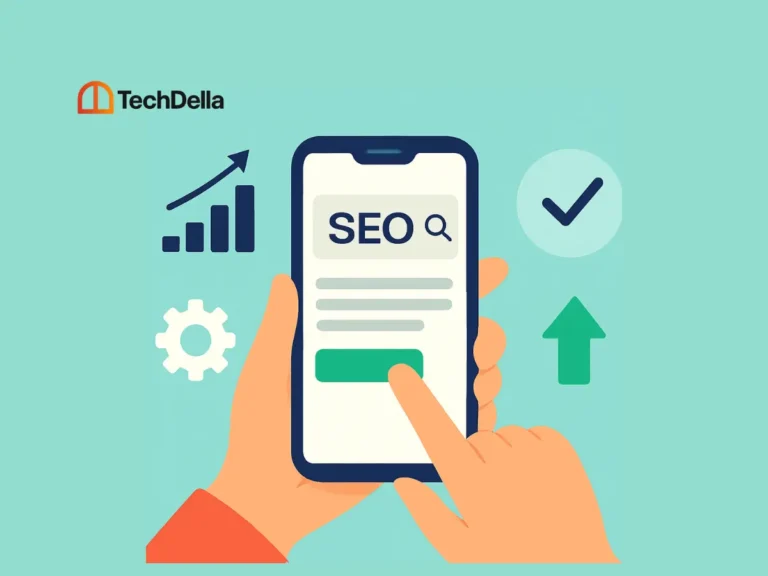
E-commerce website builder plays an important role in driving the success of any e-commerce business. Buying and selling goods and services with the use of the Internet is rapidly becoming the order of the day. With e-commerce, you can list your physical products, digital products (e-books or online courses), services, and software on your website and receive customer payments online.
An e-commerce website is vital for a business owner who wishes to expand sales. The world has gone digital, and small businesses are not left out. They are now running their online stores in addition to their physical storefront.
You may be asking, What is the importance of having an e-commerce website? What factors are to be considered when choosing the right website builder for my business? What type of e-commerce software is suitable for my business? and the best website builders for my small business.
Not to worry, we are going to answer all your questions in this article.
4 Benefits of an eCommerce Website Builder for Small Businesses

- New customers can easily be reached within and outside your location. Whereas a physical shop is limited by the number of customers who can get to the location.
- The e-commerce shop is open and available 24 hours a day. This allows customers to make purchases at any time. You can virtually make your money while you sleep. In other words, Customers can always buy your products anytime.
- The operating cost is very low compared to a brick-and-mortar store, where you would need to buy a commercial space or shop, do some furnishings, and equally, hire staff if necessary.
- With an E-commerce store, you can easily adapt to customers’ needs by improving the customer experience based on data insights.
- Makes it easy to sell a broad range of products, since it doesn’t require physical display space.
If you are confused about how you can start your business online, click here to read more about How to Start an eCommerce Business Online
What is an eCommerce Website builder?
An eCommerce website builder is a tool that allows you to create and manage your websites without extensive coding knowledge. Website builders allow freelancers, entrepreneurs, bloggers, and business owners to create websites without the need for coding knowledge.
If you’re a small business owner or a dropshipperand are looking for ways to cut costs without compromising on quality, a great alternative to consider is using an e-commerce website builder to help shape your website design.
Also, click here to learn about the 15 eCommerce Business Ideas to Start Online
Types of eCommerce Software
There are so many types of website builders. They are Shopify, WooCommerce, Squarespace, Square Online, BigCommerce, Wix, Zyro, Ecwid, ZenCart, Magento, and so many others. They vary based on the type of software they use.
- Open Source Software
- SaaS (Software-as-a-service)
Open Source Software
Open source software usually gives users full access to modify the source code. This means a business can customize its website builder in any way it chooses.
Examples of Open Source e-commerce website builders are WooCommerce, WordPress, OpenCart, and Magento.
Advantages and Disadvantages of Open Source eCommerce Website Builders
- Open-source software is very easy to download and use, but its extensions, hosting, and web development often cost money.
- They may take a lot of time to build.
- They require basic knowledge of coding, development, and design.
- With Open Source software, you can make your website look exactly the way you want.
SaaS (Software-as-a-service)
It is a web-based software available on a subscription basis. It allows the user to customize the website to an extent, but doesn’t grant access to the code.
Examples of SaaS e-commerce website builders are Wix, Shopify, and Squarespace.
Advantages and Disadvantages of SaaS eCommerce Website Builders
- Website builders with SaaS e-commerce software take less time to build.
- There are limitations to Customization
- They have built-in analytics to track metrics like traffic and clicks.
- They charge subscription fees.
These two e-commerce software differ in structure and customization options, but as a small business owner, you can decide which is right for your brand.
Read more about the Types of eCommerce Businesses
7 Things to Look For in an Efficient e-Commerce Website Builder
Selling online may seem very difficult and time-wasting, but with the right e-commerce website builder, you should be able to start quickly and effortlessly.
Here are things to look out for while choosing an e-commerce website for your business.
- Budget: Ensure the pricing structure of the platform you want to use is within your budget.
- Easy to use: Consider choosing a user-friendly website builder as a beginner to avoid wasting so much time understanding how it works. so that you won’t have to spend plenty of time trying to understand how it works.
- Flexibility: Make sure it’s a platform that can enable you to change plans.
- Features: Consider having a website builder that has various options and features like social media integration, SEO tools, and customizable forms
- SEO-Friendliness: Look for a website builder with SEO functionality that can make your website discoverable easily by search engines to attract traffic. such as editing meta descriptions, title tags, and alt text.
- Reviews: Look out for reviews and ratings of the website builder to get a sense of what other users are saying about it.
- Support: Look out for a website builder that has available support channels when you are having issues. Examples are Live chat, tutorials, and FAQs, which give businesses the information they need to keep the website-building process beginner-friendly.
9 Popular eCommerce Website Builders For Small Businesses
Here is a list of the popularly used e-commerce platform builders for small businesses. Note that there is no particular order of preference or functionality.
- Wix – Best for selling handcrafted products
- Squarespace – Best for fashion designers and photographers selling photos online.
- Shopify – Best for selling manufacturing products and dropshipping
- GoDaddy – Best for building a website quickly and for service providers.
- Square Online – Best for food businesses selling offline and online.
- Hostinger – Best for uptime reliability.
- WordPress – Best for creating a blog.
- WooCommerce – Very flexible and can be used to sell both physical and digital products.
- BigCommerce – Integrates with other sales channels like Walmart, Amazon, and eBay to allow users to sell their products.
Check out our guide on eCommerce Sales Strategies
Top 4 E-commerce Website Builders For Small Businesses
There are so many top-of-the-listeCommerce marketplace platforms and website builders for small businesses. But for the sake of small businesses, we will focus more on the best e-commerce website builders.
1. Wix
Wix is a versatile website builder known for its drag-and-drop interface and a wide range of customizable templates that you can use to create a website that reflects your brand’s unique voice and style.
You can build a basic website for free, but you’ll need to upgrade to a paid plan to use the e-commerce features.
You can create a fully functioning website without a subscription or payment. After you’ve created your site, you can decide if you want to upgrade to Wix’s Premium features, such as connecting a domain, removing Wix ads, and more.
The majority of Wix tools are built-in, and you can start building your website for free.
Favorite Feature
- User-friendly interface
- Robust customization option
- Great for various types of websites
- Offers a free plan
Cons
- Design limitations with advanced customization make switching templates challenging.
- No third-party integration
- Websites are not transferable
2. Shopify
Shopify is one of the best e-commerce software. It is best for selling manufactured products.
With Shopify, you can manage your website, conduct marketing campaigns, manage shipping and fulfillment, set up payment services, review analytics, and more.
If you’re trying out a new business idea as a small business owner, Shopify offers a free trial, which is a great way to start.
Favourite Features
- Shopify shipping
- Shopify blog
- Point Of Sale (POS)
- Theme store with over a hundred templates to choose from
- Inventory tracking
Pros
- Payment processing for both online and in-person sales
- Access to 24-hour customer support
- User-friendly and flexible
- Built-in SEO and marketing tools
- Multiple integrations that make it easy to customize your site.
Cons
- Shopify does not support email hosting.
- Pricing is expensive
- High processing fees
- Limited design options
3. Squarespace
Squarespace is best for fashion designers, artists, and photographers.
Favorite Features
- Blogging capabilities
- Audio files support
- Newsletter sign-up forms
- Beautiful, minimalistic, bold, and modern templates
- Built-in SEO features
- Mobile responsive
Pros
- User-friendly editor
- Drag and drop interface
- Beautiful modern designs
- Free domain with annual plans
Check out our guide on the Top Free Domain Websites and Their Pros and Cons
Cons
- You can’t switch templates.
- Limited third-party integration.
- No multi-currency selling features.
4. WooCommerce
WooCommerce is a free, open-source plug-in for WordPress. It converts a content-driven WordPress website into a store, complete with product listings, a shopping cart, and checkout, for users who want to sell online.
Pros
- Advanced built-in features and plug-ins.
- They are available for anyone to modify and improve.
- Both free and paid varieties of layouts for individual designs
- High scalability due to modular design.
- Supportive community.
- SEO friendly
- Inventory management
- Good Customer support
Cons
- Its focus is on the US Market.
- For only WordPress websites.
If you are about to start your ecommerce startup and you don’t know how to go about it. You can check out our guide on the Steps to Launching a Successful e-Commerce Startup, and also the Best eCommerce Platform for Startups [and Why].
Conclusion
Having an e-commerce website builder for your platform will help your business grow online. There are so many e-commerce website builders, like WooCommerce, Squarespace, Wix, Shopify, Square Online, and BigCommerce, that offer excellent free options.
Each platform has its unique features, so whichever one you choose should align with your business needs and goals.
Related Marketing Strategies

Mobile SEO Optimization Tips for Websites With High Bounce Rates

The Top 10 E-commerce Analytical Tools For 2026


